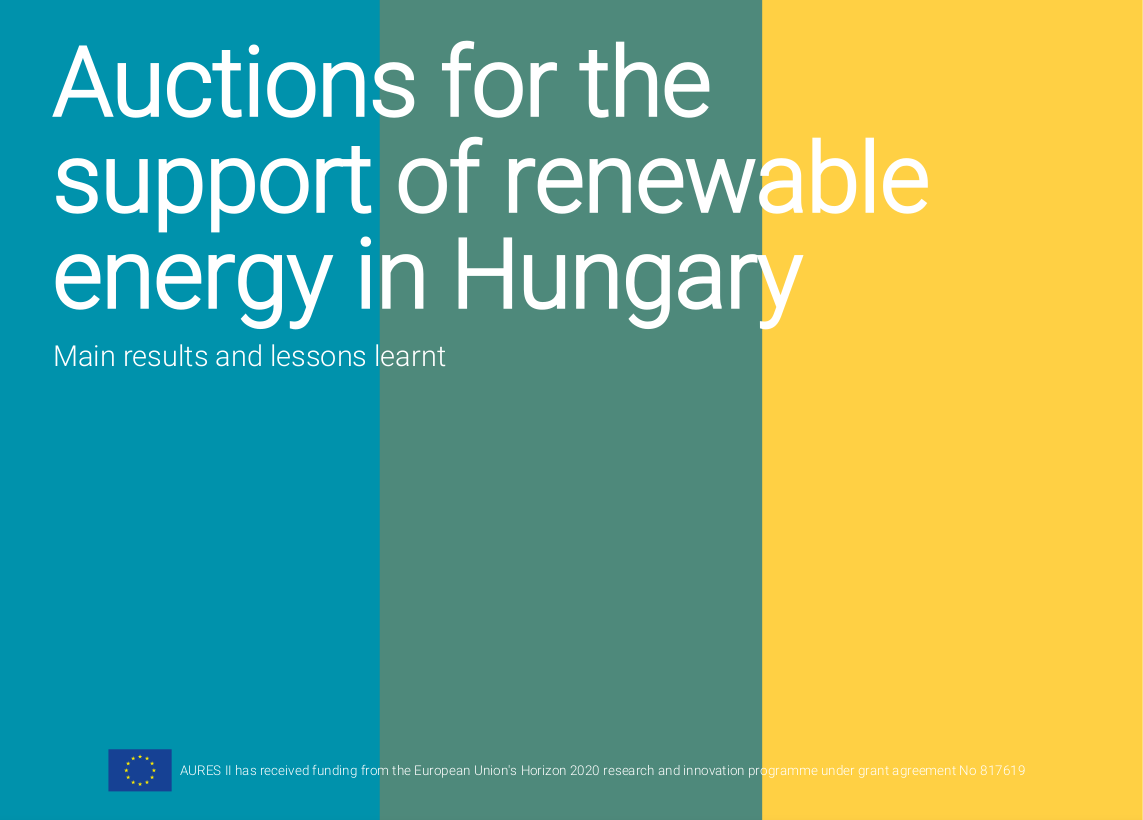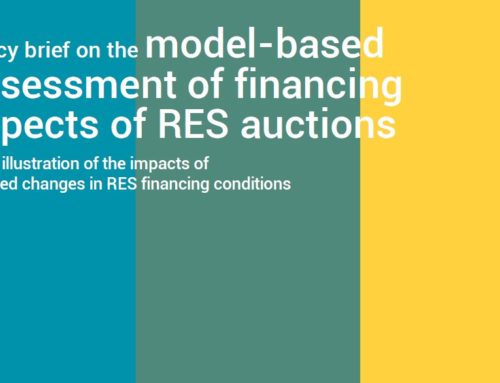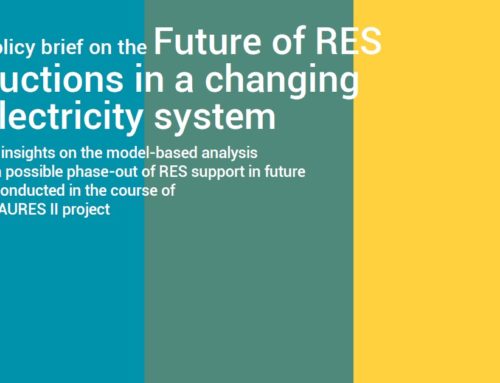In November 2019 Hungary conducted its first pilot auctionAn auction is a market mechanism with the aims of allocating... for renewable energy supportJust like administratively set support, auction-allocated su... and announced the results in March 2020.
The auctionAn auction is a market mechanism with the aims of allocating... was successful in providing information on current technology prices and driving down supportJust like administratively set support, auction-allocated su... costs, borne exclusively by non-household consumers in Hungary. Albeit the auctionAn auction is a market mechanism with the aims of allocating... was announced as technology-neutral, all the awarded projects are PV installations except for one small-scale landfill gas power plant.
This report provides an overview of the evolution of the Hungarian supportJust like administratively set support, auction-allocated su... scheme and renewable deployment, and presents the main design features and the results of the pilot auctionAn auction is a market mechanism with the aims of allocating.... Developers competed in two size categories to gain supportJust like administratively set support, auction-allocated su... to produce 200 GWh/year, up to a maximum budget of HUF 1 billon EUR 2.9 million. Altogether, 168 bids were submitted representing 349 MW capacity, 269.4 MW of which belonged to projects eligible to participate in the auctionAn auction is a market mechanism with the aims of allocating..., which means the auctioneer managed sufficient level of participation.
Although recent increase of the Hungarian exchange rate, coupled by the volatility in the electricity and foreign exchange markets induced by the COVID-19 pandemic might affect the implementation of the winning projects, the national regulatory authority expects to connect 131.84 MW renewable capacity to the grid which would meet its objective.
The structure of the paper is the following. Chapter 1 provides a brief overview of the electricity sector, followed by the description of the main pillars of the Hungarian supportJust like administratively set support, auction-allocated su... scheme and the status of deployment of different renewable technologies in Chapter 2. The key design elements and characteristics of the renewable auctionAn auction is a market mechanism with the aims of allocating... are outlined in Chapter 3. Chapter 4 presents the main outcomes of the auctionAn auction is a market mechanism with the aims of allocating..., which are evaluated in more detail in Chapter 5. The final section concludes by summarizing lessons learned and how they can be applied to improve the Hungarian auctionAn auction is a market mechanism with the aims of allocating... system in the future.
Download the report here




